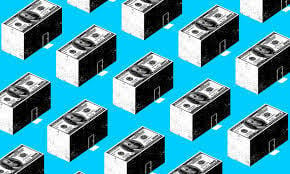Universal Income and Population Control Are Inexorably Tied

A lot of people—me included—are excited about the concept of Universal Basic Income. This is the idea of eliminating all or most of the need for someone to struggle to survive, thus giving them time to dedicate to higher-level efforts like art, science, etc.
A basic example would be someone who wishes they could be a painter, or a musician, or an architect, but they can’t afford to go to school or to practice their art because of their main bills. Basic Income would provide an amount of money for free to them, and every other citizen, so that they didn’t have to worry about basic housing and food costs, so that they were free to pursue their passions.
The consensus among many experts is that this isn’t just a nice idea, but that it’s about to be essential. The problem is that there are too many people and the jobs are getting automated away. So we need to be able to create value in ways other than performing basic tasks like transporting things from a to be, or doing basic management tasks that can be done better by computers.
Here’s the problem in the simplest form:
More and more people.
Fewer and fewer jobs.
Something has to give.
Basic Income is just one approach, but it seems most realistic of the numerous bad options. And even with Basic Income this doesn’t solve the issue completely. You still have other questions to answer:
Where is the money coming from if fewer and fewer people are creating value, and the amount of Basic Income required keeps going up?
How can we be sure that those receiving the Basic Income will use their spare cycles to create new value?
Can we be sure that new types of jobs will be created once computers and automation take most existing ones? It’s not guaranteed to go down the same way it did in previous industrial revolutions.
The numbers game
One thing that always troubled me about Basic Income is the numbers.
Some percentage of the population will use the income to simply do nothing, and then to reproduce. Another percentage of the population will create a lot of new value and also reproduce. And another group will create value and not reproduce.
But what percentages will be in each? It matters a lot.
If we have some mixes we get a new economy based on new value, and life is good. And if we have another mix the system will implode under its own weight.
But let’s say that we’re watching it become bottom-heavy and untenable. And the issue is too many people reproducing and not producing value.
What do you do?
That is the single most important question around Basic Income in my opinion. Even more important than whether new types of value can be created or not. It’s a question of numbers. How few people can support how many, and for how long?
There are a few sliders in this equation.
Number of value producers.
Amount of new value created.
Amount of people consuming and not producing.
The speed of reproduction of each group.
Put these into a spreadsheet and mess with the numbers. I’m not qualified to do so, but I am guessing that the numbers are pretty scary at the extremes.
To me this leads to the following prediction:
Basic income will happen, simply because there’s no better alternative.
The numbers involved will inevitably lead to calls for population control.
There will be proposals to limit children of people who only have basic income, income requirements for having kids over a certain number, rating the value contributed to society for additional kids, etc.
I don’t see how this won’t happen.
Whenever you think of Basic Income, keep this in mind. It’s a great idea, but there’s a blade on the handle.